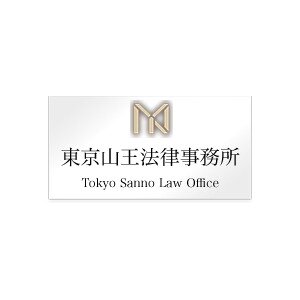Best Housing, Construction & Development Lawyers in Japan
Share your needs with us, get contacted by law firms.
Free. Takes 2 min.
Free Guide to Hiring a Real Estate Lawyer
Or refine your search by selecting a city:
List of the best lawyers in Japan
About Housing, Construction & Development Law in Japan
Housing, construction, and development law in Japan encompass a broad array of regulations and rules that govern the building and maintenance of residential and commercial properties. These laws ensure safety, environmental compatibility, and proper land use. They cover real estate transactions, construction standards, zoning regulations, tenant rights, and urban planning. The sector is regulated by multiple government bodies, and stakeholders must navigate a complex legal framework to ensure compliance and protect their interests.
Why You May Need a Lawyer
Individuals and businesses involved in housing, construction, and development often encounter complex issues requiring legal expertise. Common situations include disputes over property boundaries, contract breaches during construction projects, tenant-landlord conflicts, zoning and land use issues, and navigating the regulatory landscape for new developments. Legal advice can be crucial in protecting one’s rights, ensuring compliance with local regulations, and resolving disputes effectively.
Local Laws Overview
The legal landscape surrounding housing, construction, and development in Japan centers around several key laws:
Building Standards Act: This law outlines technical standards for buildings, focusing on safety, sanitation, and the environment.
Urban Planning Act: This governs zoning laws and land use, playing a crucial role in how land can be developed in urban settings.
Real Estate Transaction Business Law: Regulates real estate agents, their obligations to clients, and the handling of transactions.
Residential Tenancy Act: This provides the framework for relationships between landlords and tenants, addressing issues like rent, deposits, and eviction processes.
Environmental Protection Laws: Developers must also consider environmental regulations aimed at minimizing negative impacts on ecosystems and ensuring sustainable development practices.
Frequently Asked Questions
What permits do I need to start a construction project in Japan?
To start a construction project, you typically need a construction permit. Depending on the project's nature, additional permits related to zoning, environment, and safety may also be required.
Can foreign nationals buy property in Japan?
Yes, foreign nationals can buy property in Japan. There are no restrictions, but purchasing processes may differ slightly, emphasizing the need for legal advice.
What should I do if my tenant refuses to pay rent?
You can begin legal proceedings to evict a tenant. However, eviction is a legal process that requires adherence to specific steps and may involve negotiation or mediation.
How is property tax calculated?
Property tax in Japan is based on the assessed value of the land and buildings, calculated by local governments. The rate can vary depending on location and property use.
What is a key money in a rental agreement?
Key money is a non-refundable fee paid to the landlord upon signing a rental contract. It is a traditional practice and amounts can vary greatly.
Can a landlord increase rent arbitrarily?
No, rent increases are regulated and typically must be justified. Landlords cannot raise rent unreasonably or frequently.
What are the risks of purchasing a pre-owned apartment?
Risks may include hidden defects, issues with the ownership of the building's land, or association fees. Thorough inspections and legal due diligence are advisable.
How do zoning laws affect property development?
Zoning laws dictate how land can be used and developed, impacting what can be built and the density of development. Adherence is crucial to avoid legal penalties.
What recourse do I have if a contractor breaches our agreement?
You may seek damages or specific performance through legal action. Mediation or arbitration could also be options for resolving such disputes.
How can I ensure compliance with building safety standards?
Using experienced architects and contractors familiar with local codes can help. Regular inspections and consulting with legal experts are also recommended.
Additional Resources
Here are some resources that can provide further help and information:
Ministry of Land, Infrastructure, Transport and Tourism (MLIT): Offers guidelines and updates on regulations affecting housing and construction.
Japan Real Estate Institute: Provides insights and data on market trends and property values.
Japanese Bar Association: Can help find qualified lawyers specialized in real estate and construction law.
Next Steps
If you need legal assistance in housing, construction, and development, consider the following steps:
1. Consult a Lawyer: Seek out a lawyer specializing in real estate or construction law to discuss your specific needs or issue.
2. Conduct Thorough Research: Educate yourself on the relevant laws and processes involved in your matter.
3. Gather Relevant Documentation: Make sure all relevant documents, contracts, and correspondence are organized for review.
4. Consider Mediation: For disputes, mediation can be a less adversarial and often effective way of reaching a resolution.
Lawzana helps you find the best lawyers and law firms in Japan through a curated and pre-screened list of qualified legal professionals. Our platform offers rankings and detailed profiles of attorneys and law firms, allowing you to compare based on practice areas, including Housing, Construction & Development, experience, and client feedback.
Each profile includes a description of the firm's areas of practice, client reviews, team members and partners, year of establishment, spoken languages, office locations, contact information, social media presence, and any published articles or resources. Most firms on our platform speak English and are experienced in both local and international legal matters.
Get a quote from top-rated law firms in Japan — quickly, securely, and without unnecessary hassle.
Disclaimer:
The information provided on this page is for general informational purposes only and does not constitute legal advice. While we strive to ensure the accuracy and relevance of the content, legal information may change over time, and interpretations of the law can vary. You should always consult with a qualified legal professional for advice specific to your situation.
We disclaim all liability for actions taken or not taken based on the content of this page. If you believe any information is incorrect or outdated, please contact us, and we will review and update it where appropriate.
Browse housing, construction & development law firms by city in Japan
Refine your search by selecting a city.

















